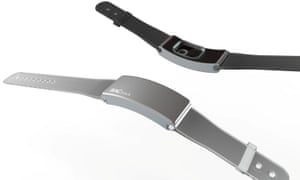
Gadget helps specialists precisely measure patient's drinking history, and not simply rely on upon latest tests
A San Francisco-based organization has won a US government-supported rivalry with a liquor checking gadgets that can be worn on the wrist, the most recent breakthrough in the advancement of wearable innovations that screen and analyze medicinal conditions.
BACtrack, a secretly held restorative gadget producer, took the $200,000 top prize in the National Institutes of Health Wearable Biosensor Challenge with its wristband screen – named BACtrack Skyn – which measures blood liquor levels through sweat on the skin.
We anticipated that the gadget would be an important asset for liquor research group.
"It can help specialists precisely measure a patient's drinking history, and not simply rely on upon the latest tests," Koob said. "This can help a considerable measure with the treatment."
Medicinal, law requirement and transportation authorities have long looked for better innovation for identification of blood liquor levels. Conventional versatile breath liquor analyzers are inconvenient and can cost over $1,000, and they don't give continuous observing of liquor levels.
"The blood liquor observing gadgets utilized as a part of legitimate and medicinal circles are enormous and cumbersome, similar to a life restriction for the ones utilizing it," said Keith Nothacker, president of BACtrack. "We needed to make something individuals would need to wear."
The gadget in its present structure won't, be that as it may, be a substitute for breathalyzers or blood tests utilized by law implementation, in light of the fact that the gadget does not give constant blood-liquor levels.
Nothacker said it takes in regards to 45 minutes for ethanol to be transmitted through the skin, and that the gadget is intended to give a late history of liquor use.
BACtrack has been trying different things with purchaser driven liquor testing for quite a while. In 2013, it presented the BACtrack Mobile Breathalyzer, which synchronizes with a cell phone to track blood liquor content.
BACtrack beat seven other littler organizations to win the NIH rivalry. Milo, a Santa Barbara based innovation startup, won the $100,000 second-put prize for its configuration of a wearable liquor content tracker that likewise utilizes a skin sensor and speaks with a cell phone utilizing remote innovation.
